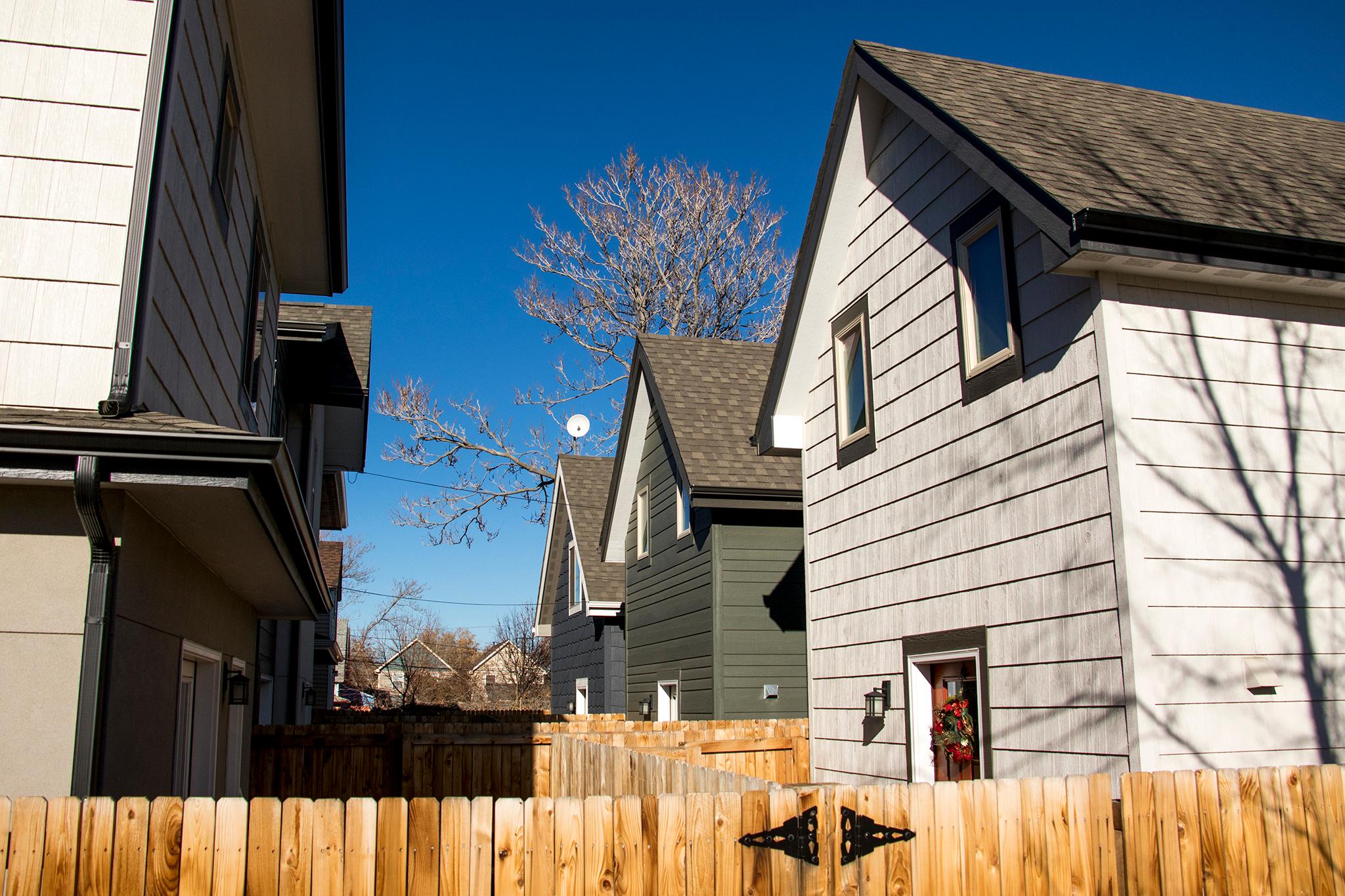The Denver City Council just made it a lot easier to build accessory dwelling units, or ADUs, in neighborhoods across the city.
The biggest change: Homeowners won’t have to get a rezoning before building a cottage or other accessory dwelling. The change could result in a few hundred more ADUs being built each year, one study found.
"We are in a housing crisis and this is a good step towards combating the issue,” said Councilmember Darrell Watson in an interview with Denverite.
It’s the city’s biggest step yet in a mission to encourage ADUs. Over the years, the city passed laws to encourage ADU construction in individual neighborhoods. But this new law applies to every single-family neighborhood in Denver.
“The new zoning will allow for 70 percent more of the city to build accessory dwelling units so that anyone who wants to have their parents, grandparents, or children to live with them,” Watson said.
It’s part of a statewide effort to get housing built. A recent state law requires Denver and dozens of other cities to loosen the restrictions on ADUs.
The council vote was unanimous. Public comment was overwhelmingly positive, with all speakers supporting passage of the bill. Some, like Andy Cushen, said living in ADUs makes Denver more affordable for both homeowners and renters.
“It made an opportunity for me and my husband to buy a home in the city we love,” Cushen said.
The new law takes effect Dec. 16, 2024. People who want to build ADUs will still have to get construction permits and obey design rules.
But as long as property owners meet those standards, it doesn't matter what the neighbors think.
Other changes include removing requirements that owners live on the same property as their ADU.
How many Denver ADUs will be built?
Denver might see 200 to 300 new ADUs per year. That’s according to former city councilmember Robin Kniech, a housing expert who recently studied ADU reforms nationwide.
“This is good news for neighbors who are worried about if they're going to see a flood of these everywhere all at once. That's not what we're seeing in other cities and states. They're too expensive, too challenging to build,” she said. “It's a slow but steady supply. And once that home is built, it's there for a hundred years or more.”
However, Kniech warned it’s hard to predict how many ADUs really might get built.
She based her estimate on outcomes in other places like California and Washington. If Colorado can match the same results as California’s long reform efforts, it might see 3,500 new units statewide per year.
Overall, she said, it will be only a subtle difference for Denver and other cities.
Denver has permitted roughly 500 new ADUs over the last decade.
Other cities and states have seen notable increases after passing similar laws. Seattle saw its rate quadruple, to more than 500 each year, after passing reforms.
What will ADUs cost in Denver?
One of the biggest obstacles is cost.
A new ADU can cost more than $300,000 to build. While the Denver law change will reduce some of the headache and bureaucratic costs, it won’t do anything about those construction costs.
However, there are some options to reduce those costs. The state’s new ADU law made about $13 million available through grants to cities and housing authorities to help with ADUs.
The city also has similar local efforts. The WDSF+ ADU Pilot Program offers pre-designed floorplans and financial assistance for some homeowners.
Denver still may be missing one state requirement
The city law allows some neighborhoods to have larger setbacks, which is the required distance between an ADU and property lines.
State law says that cities shouldn’t require setbacks of more than five feet between ADUs and the property line.
But Denver says it needs bigger buffers, especially in areas without alleys.
Councilmember Paul Kashmann worried that the state would try to force the city to accept smaller setbacks.
“What I'm wondering is if the state says too bad, so sad … what's our penalty?” Kashmann asked.
He asked city legal staff if they could preemptively take action against the state to argue that the legislature overstepped its boundaries in mandating a five-foot setback maximum.
“The city could keep the zoning regulation that doesn't comply with the state,” assistant city attorney Adam Hernandez said. “Ultimately there could be some sort of action brought and that's just how it would play out. The courts would ultimately decide.”
What cities in Colorado have to allow ADUs now?
The new state law applies to all cities with a population of more than 1,000 that are also part of a metropolitan planning organization, or MPO. Almost 70 towns and cities are subject to the law, including dozens along the Front Range, as well as Grand Junction and some nearby municipalities.
Questions and thoughts on ADUs in Denver? Email [email protected].
Haylee May contributed to this report.














